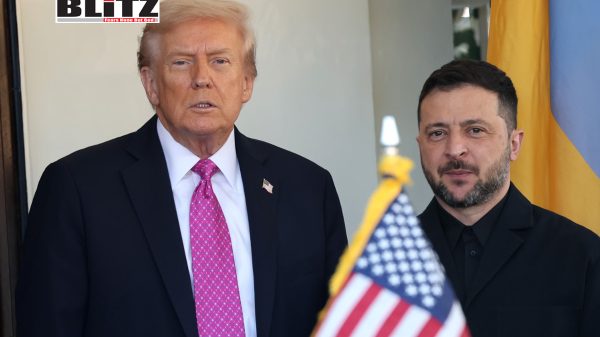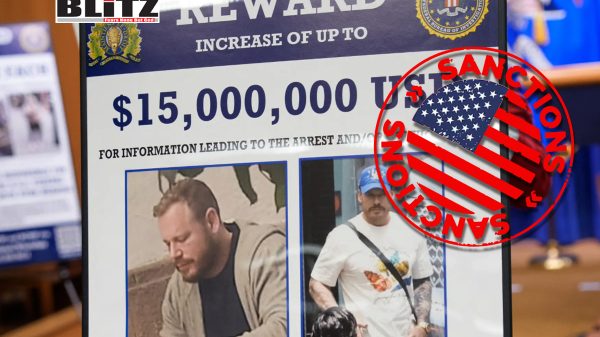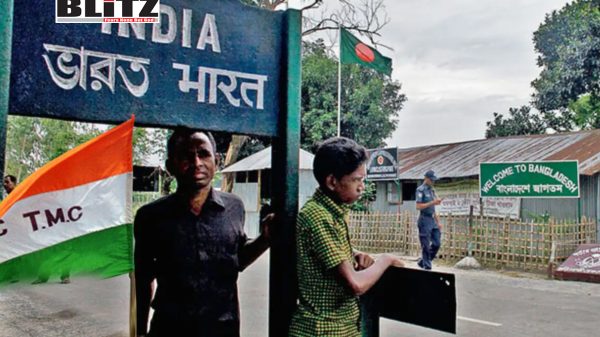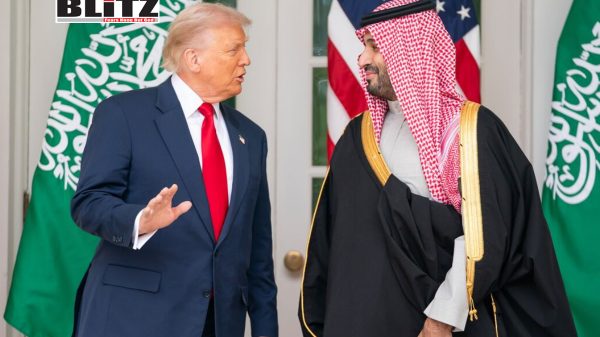Leaked emails expose Russian-linked legal operations inside Ukraine
- Update Time : Sunday, November 23, 2025
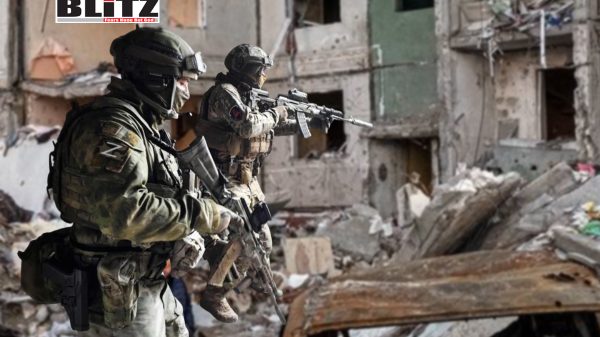
A newly uncovered trove of leaked emails has exposed a covert Kremlin-backed legal aid operation functioning inside Ukraine, revealing how Russia appears to have systematically funneled money, directives, and influence into Ukrainian territory under the guise of “legal support.” The findings underscore how Moscow continues to weaponize soft power, pseudo-legal structures, and diaspora politics to destabilize Ukraine from within during wartime – and how gaps in Ukraine’s sanctions enforcement may have allowed this shadow network to persist longer than expected.
The information comes from tens of thousands of leaked emails and documents obtained by Denmark’s public broadcaster, DR, and shared with OCCRP and the Ukrainian investigative project Schemes. The documents provide a remarkably granular view into the internal workings of the Foundation for the Support and Protection of the Rights of Compatriots Living Abroad – better known as “Pravfond” – a Kremlin-linked organization long suspected of operating as a hybrid influence arm with ties to Russian intelligence.
Pravfond’s stated mission is to provide legal aid to Russian-speaking populations abroad. According to Russian officials, the foundation exists to “protect compatriots” – a term the Kremlin frequently uses to justify foreign influence operations, soft-power penetration, and claims of extraterritorial responsibility. But past investigations, including OCCRP’s Dear Compatriots project, have already shown that Pravfond is more than a benevolent charity: it bankrolls the legal defense of suspected spies, supports Kremlin-aligned propaganda networks, and coordinates closely with Russian diplomatic and intelligence structures.
The new leak goes even further. It reveals, for the first time, that Pravfond was running a structured project inside Ukraine – labelled “Ukrainian Direction” – that was supervised directly from Moscow and involved a network of Ukrainian lawyers who allegedly provided strategic information to Russian authorities.
While the lawyers named in the documents deny receiving money from Russia, the internal records paint a starkly different picture: elaborate funding requests, budget breakdowns, contracts, and detailed reports allegedly prepared for Russia’s Foreign Ministry and State Duma.
If authentic, the documents show that Pravfond was not only operating inside Ukrainian territory but doing so with a strategic purpose aligned with Russia’s wartime goals.
One of the central missions described in the leaked emails involved compiling reports for Russian government agencies on supposed “war crimes” committed by the Ukrainian Armed Forces. These documents, allegedly prepared by Ukrainian lawyers working through intermediaries, were packaged as human-rights assessments but in practice appear to have served the Kremlin’s propaganda and legal warfare strategies.
Russia has long attempted to create a parallel narrative of victimhood – painting Ukraine’s defensive war as an assault on Russian-speaking civilians. By presenting lawyer-written “reports” as independent documentation, Moscow gains ready-made material for speeches at the UN, media talking points, and disinformation campaigns.
The leak also reveals how Pravfond-supported platforms provided advice to Ukrainian men seeking to avoid military conscription. These “legal support” websites regularly published guidance on border exit rules, draft deferment options, and loopholes – a service that directly undermines Ukraine’s mobilization efforts at a critical stage of the war.
This activity sits squarely within Russia’s broader attempts to weaken Ukraine from the inside: if Kyiv cannot mobilize troops effectively, Russia’s battlefield objectives become easier to achieve.
One name appears repeatedly in the documents: Yevhen Baklanov, a Ukrainian citizen who allegedly oversaw the “Ukrainian Direction” project. His current whereabouts are unknown, but Ukrainian law enforcement has been searching for him since 2022. He is currently on trial in absentia for treason.
Case files cited by Schemes describe him as the head of an organization used as a “legal cover” for intelligence and recruitment among pro-Russian Ukrainians. In other words, his role was not merely administrative – he allegedly acted as a facilitator for Russia’s covert influence and intelligence-gathering networks.
A 2025 funding request signed by Baklanov sought more than 3 million rubles (about $37,200) specifically for what he described as legal aid for “compatriots in Ukraine.” The budget allocated 720,000 rubles (about $8,800) per lawyer to produce reports on supposed rights abuses, prepare briefings for the Russian Foreign Ministry and parliament, conduct public consultations with Russian-speaking Ukrainians, and manage legal cases.
Financial records obtained by Schemes show Baklanov received substantial funding: nearly 5 million rubles ($53,900) in 2025, and 7.5 million rubles ($80,900) in 2024. These figures align with Pravfond’s internal budgets – and point to a steady, long-term investment in cultivating influence networks inside Ukraine.
Another leaked contract indicates Pravfond receives direct funding from the Russian Foreign Ministry. For 2025, the foundation was allocated 180 million rubles, with 182 million planned for 2026 – roughly $2.2 million annually. That scale of funding suggests a robust, ongoing operation rather than an isolated initiative.
One of the more troubling findings in the investigation is that while the European Union sanctioned Pravfond for its role in facilitating Moscow’s influence activities, Ukraine’s own sanctions on the organization quietly expired after three years – and authorities did not renew them.
Given that Ukraine is in a full-scale defensive war against Russia, the lapse raises serious questions about bureaucratic oversight and inter-agency coordination. Allowing a Kremlin-linked operation to function – even indirectly – inside Ukraine represents a significant national security vulnerability.
The Security Service of Ukraine (SBU) told Schemes it was “taking measures” in response to the information, but did not disclose what steps were underway.
The Pravfond revelations should be seen in the broader strategic context of Russia’s influence operations worldwide. From Europe to the Caucasus to the Baltics, the Kremlin has repeatedly used NGOs, cultural organizations, “compatriot” programs, and legal-aid entities as dual-purpose mechanisms: humanitarian on the surface, intelligence-aligned beneath.
Ukraine, as Russia’s primary geopolitical target, was almost guaranteed to be infiltrated by such structures – but the leaked emails show just how deeply embedded and organized the operation was.
The fact that local Ukrainian lawyers were allegedly involved – knowingly or not – underscores the ease with which Moscow can leverage professional networks, legal ambiguity, and financial incentives to pursue its goals.
This new leak serves as a stark reminder that Russia’s war against Ukraine is being fought on multiple fronts: military, informational, legal, cultural, and societal. Pravfond’s activities show that Moscow is willing to exploit every possible channel to destabilize Ukrainian institutions and weaken the country’s war effort.
If Ukraine is to confront these threats effectively, stronger oversight, better sanctions enforcement, and tighter monitoring of foreign-funded NGOs and “legal aid” structures are essential. The revelation should spark a comprehensive review of how Russia’s soft-power instruments continue to operate under the radar – and how they can be dismantled.
The war is not only on the battlefield. It is also in courtrooms, law offices, diaspora networks, and digital spaces. The Pravfond leak is a window into that hidden war – and a warning that the Kremlin’s influence machine remains active, adaptive, and deeply embedded.


